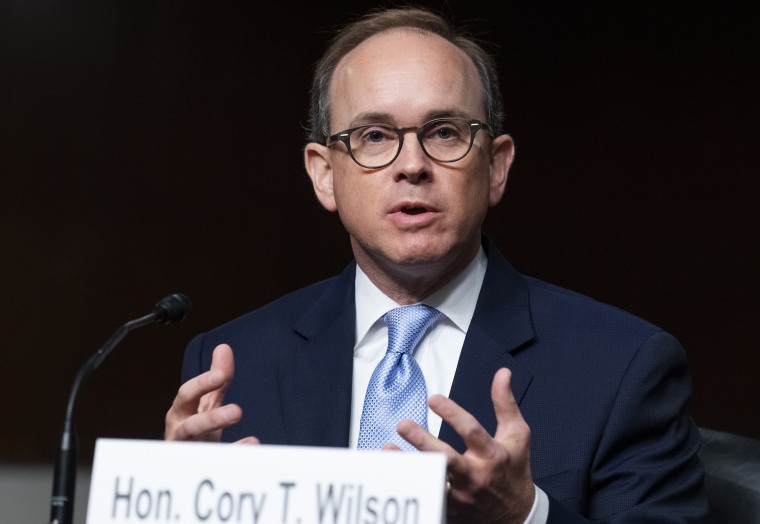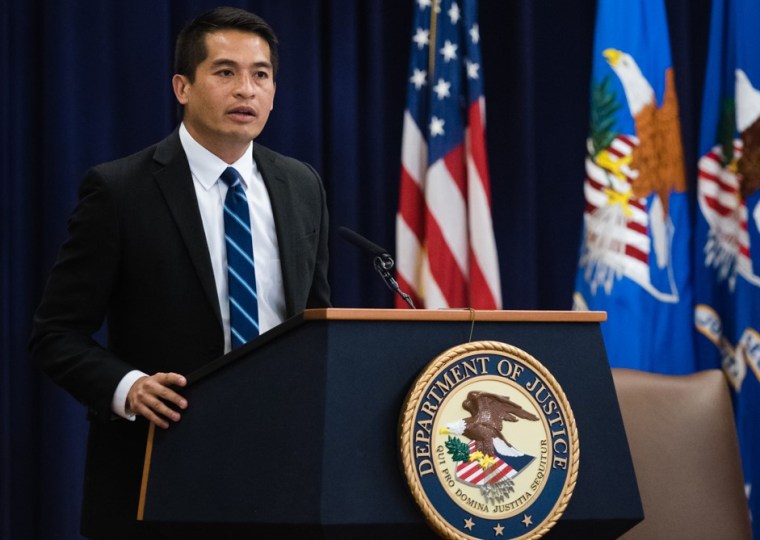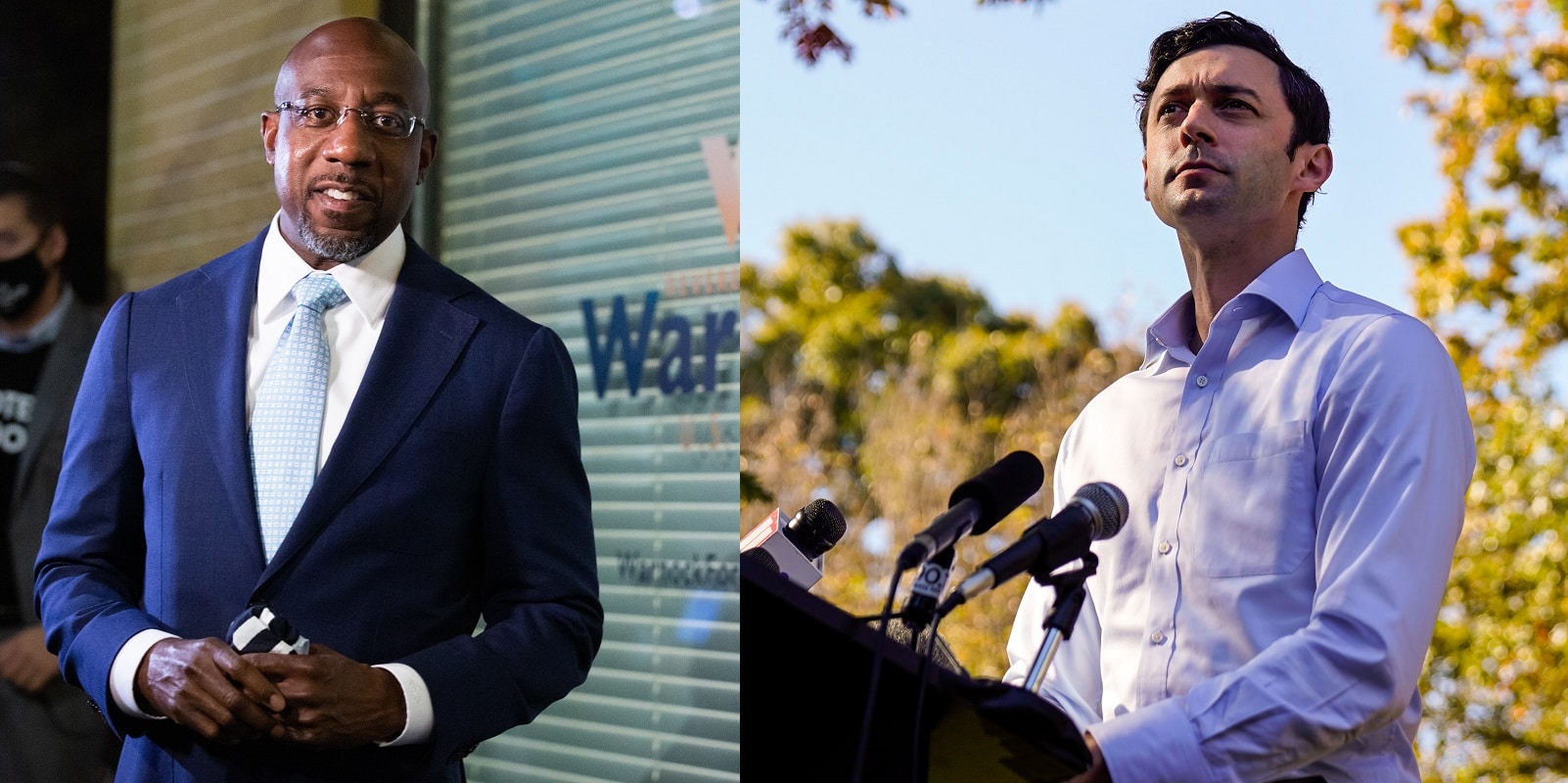LGBTQ Georgians hopeful following Warnock, Ossoff Senate victories
When news organizations projected that Democrat Raphael Warnock had won one of Georgia’s two critical Senate runoffs on Tuesday, Ian Webb sat in his Atlanta apartment and cried.
“I’ve grown up believing that Georgia is a red state, and that I was a blue dot,” Webb, 24, told NBC News. “Since I turned 18, I’ve been volunteering on Democratic campaigns at every level of government, and to be quite frank, I became accustomed to losing and essentially being told that as a queer individual, I don’t deserve the same rights as my straight brothers and sisters.”
Warnock and fellow Democrat Jon Ossoff, who won the other runoff, ran on a platform that explicitly backed pro-LGBTQ policies, including nondiscrimination protections at the federal level.
“I also am just excited to have two senators representing Georgia who believe that love is love, trans rights are human rights, and that everyone is equal under the law and the constitution,” Webb said. “We have leaders who represent Georgia with love and conviction.”
Both Ossoff and Warnock are on record as supporting the Equality Act, federal legislation that would modify existing civil rights protections to include protections against discrimination based on sexual orientation and gender identity in employment, housing, public accommodations, jury service, education, federal programs and obtaining credit.
The legislation passed in the Democrat-controlled House but was never given a vote in the GOP-controlled Senate. With Democrats now controlling both chambers of Congress, thanks to the results in Georgia, President-elect Joe Biden has said he hopes to sign the legislation within his first 100 days in office.
Organizers in Georgia told NBC News that the candidates’ support for the LGBTQ community goes beyond just supporting federal legislation.
Jeff Graham, executive director of Georgia Equality, a statewide LGBTQ advocacy group, said the Ossoff and Warnock campaigns were “the first time anyone from Georgia running for federal office actively engaged the LGBT community” in his 12 years leading the group.
Graham said the candidates’ efforts to actively engage with the LGBTQ community and develop platforms that cater to the community’s specific needs was an important part of their winning coalition. Georgia Equality, he added, engaged around 650,000 pro-equality voters — both LGBTQ Georgians and allies who support LGBTQ rights —as part of the organization’s comprehensive get-out-the-vote effort.
The Human Rights Campaign, the nation’s largest LGBTQ advocacy group, said it deployed a dozen staff members to the state and had hundreds of volunteers dedicated to mobilizing its 1.3 million “equality voters,” including its estimated 356,000 voting-age LGBTQ residents.
“I hope that, first and foremost, they will remember that the LGBT community helped them win their elections on Tuesday. But second of all, to really recognize that, as senators from the South, it’s incredibly important for them to continue to engage LGBT communities around the state,” Graham said. “This is not something that LGBTQ folks in Georgia, or frankly in the South, are used to having.”
The Rev. Jasmine Beach-Ferrara, executive director of the Campaign for Southern Equality, a North Carolina-based organization that works to promote LGBTQ equality across the South, said she would like to see the Democrat-controlled Senate prioritize LGBTQ discrimination protections at the federal level.
“For the one-third of LGBTQ Americans who live in the South, inaction from the federal government has caused significant harm, delaying solutions on everything from Covid-19 dangers, economic hardship and health care disparities to anti-LGBTQ discrimination and the violence of white supremacy,” Beach-Ferrara said. “Finally, following these important Senate victories, there is a pathway forward for addressing these societal challenges.”
‘Hoped for the best, expected the worst’
For some LGBTQ Georgians, like Roxy, a 36-year-old lesbian who lives in the Atlanta suburb of South Fulton, the election results came as a total shock. Roxy said she didn’t even bother to stay up late Tuesday night to see the results.
“I didn’t have any expectations, especially with so many more people believing the rhetoric that progress equates to losing privileges,” she said. “I cast my vote, hoped for the best and expected the worst.”
“As a Black lesbian, I am glad that we have elected politicians that will push progressive policies,” she added, noting that she voted for both Warnock and Ossoff. “I have faith that, at least for these next four years, my rights are protected, but enforcement of those protections is yet to be seen. We are living in a very polarizing time in history.”
Roxy declined to have her full name published out of fear that being publicly identified as a Black lesbian could put her in danger.
Jen, a 45-year-old bisexual woman who lives outside Atlanta, said the election of Ossoff and Warnock brought relief for her and her transgender child. She said the exhaustion she felt after participating in volunteer efforts to get both Democrats elected was offset by seeing her child’s reaction on Wednesday morning upon learning of the election results.
Jen, who asked that her full name not be published to protect the privacy of her transgender child, said the real work has only just begun. She expressed hope that Congress and the incoming Biden administration will work to reverse the Trump administration’s rollback of LGBTQ rights, including its ban on transgender service members serving openly in the military and its removal of transgender discrimination protections in health care.
“I don’t feel our job is done,” she said. “LGBTQ issues and rights are human rights — they are everyone’s rights. We should all be fighting for these rights, and I want to see them fighting for them.”


